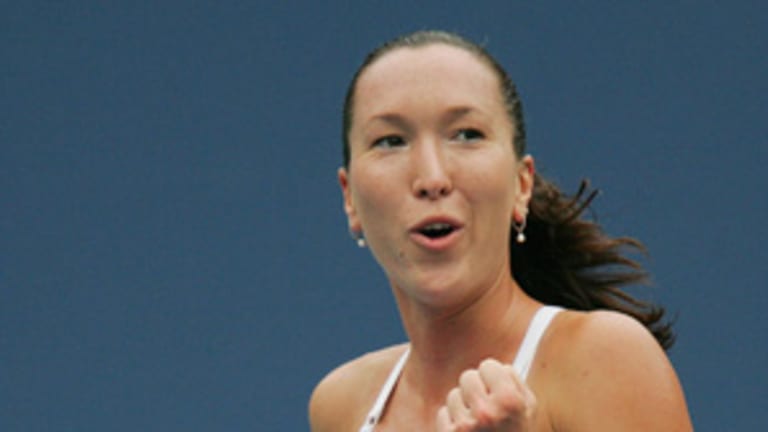Remember when, just last year, Eugenie Bouchard was being touted as the new “it girl” in tennis? Just five months ago, we made the then-20-year-old the focus of our 2015 season preview. It was not without good reason: The Canadian, who began 2014 ranked No. 32, had climbed to No. 5 and reached the Australian and French Open semifinals and Wimbledon final along the way.
How things have changed. These days, Bouchard is more likely to be bombarded with doubters and critics than adoring fans and stuffed animals. Her first-round win yesterday in Eastbourne over Alison Riske was just her second victory in her last 12 matches. It was a temporary salve: Earlier today, she retired with an abdominal injury while trailing Belinda Bencic 6-4, 3-0. Each time Bouchard has appeared to bottom out this year, she’s dug herself a deeper hole as she slipped outside the Top 10.
Still, Bouchard’s extended slump isn’t all that unusual—tennis has been witness to some incredible losing streaks in recent years. Vince Spadea holds the record on the men’s side with a mind-boggling 21 losses in a row in 2000; Donald Young, once a huge hope for American tennis, put together an almost equally abysmal 17-match skid in 2012. Just last year, former French Open champion Francesca Schiavone suffered nine straight losses.
But from every slump comes an eventual turnaround, and one of the more famous stories involves Jelena Jankovic. The Serbian is the owner of 13 WTA titles, five Grand Slam semifinal appearances, and a runner-up finish at the 2008 U.S. Open. But in 2006, coming off a season that included her first three titles and her first appearance in the Top 20, Jankovic lost 10 matches in a row.
The losing streak began shortly after Jankovic lost her final three matches of 2005. Similarly, Bouchard lost her final three matches in 2014, at the WTA Finals in Singapore. We may not have thought about them much at the time, with new years wiping the slates clean, but each blossomed into something ugly. Jankovic’s dip came at 21, the same age as Bouchard.
The similarities don’t end there. Jankovic’s low point was a loss to 193rd-ranked Julia Vakulenko in Charleston; Bouchard’s loss to 113th-ranked Tatjana Maria in the first round of Miami could be considered her nadir. All of their losses were to players they were expected to beat, the majority of which were ranked well outside the Top 20, with a few even outside the Top 50.
Jankovic went so far as to admit that she considered quitting tennis. “When the losing streak] happened, it was tough time for me. I don't like to lose,” [she said during a press conference at the 2006 U.S. Open. “I don't think anybody likes to lose. But for me, I'm a bad loser kind of.”
